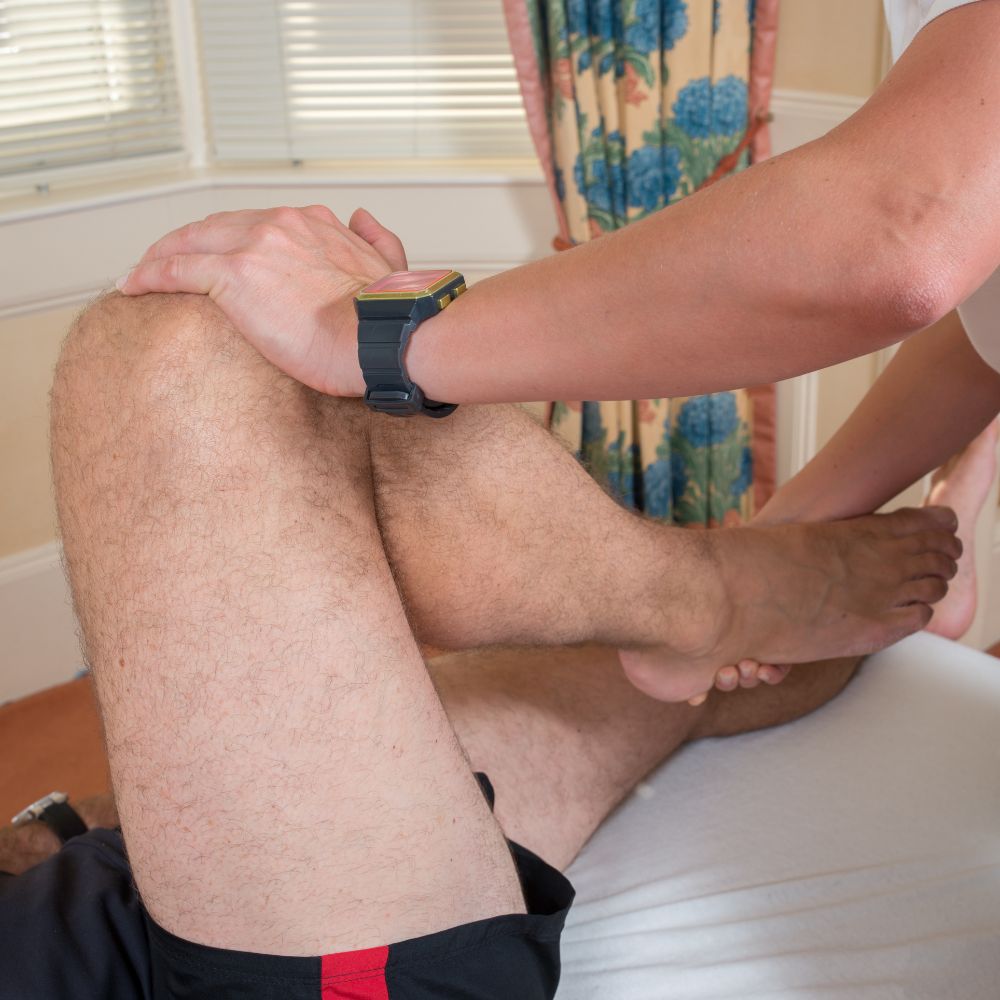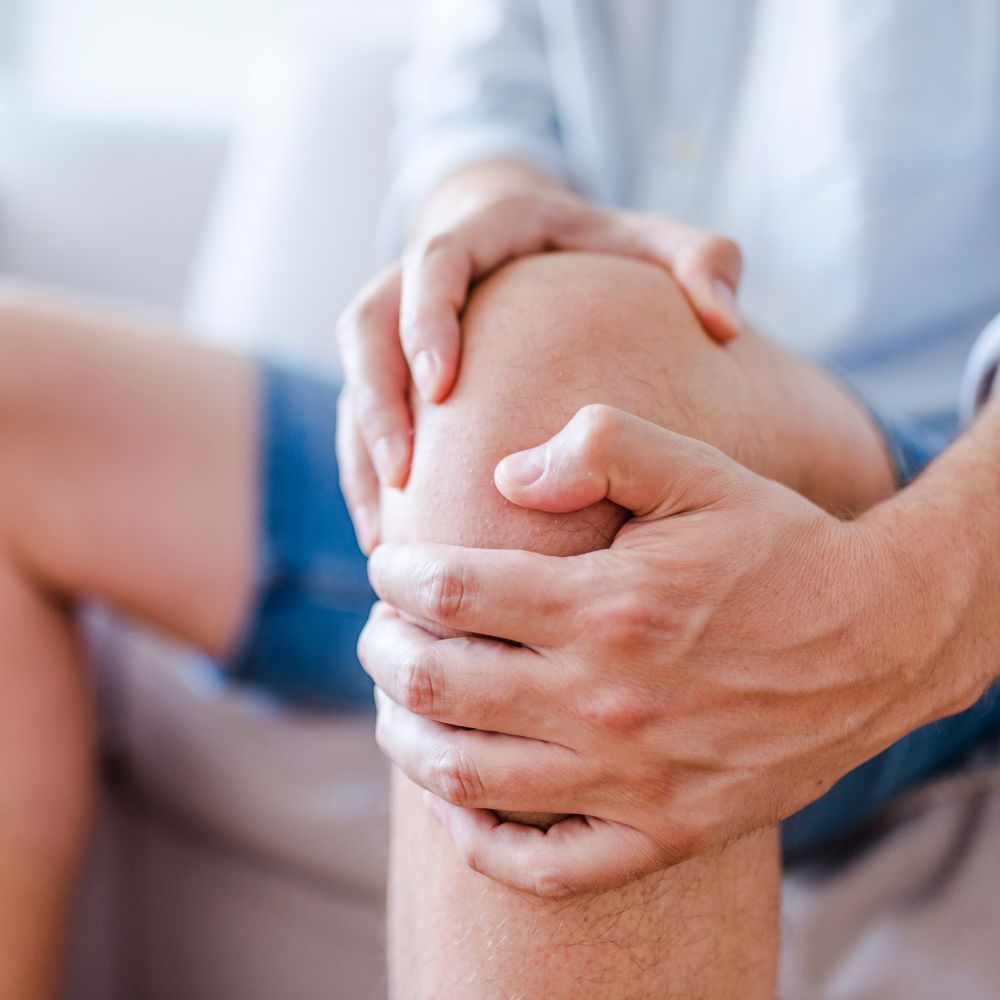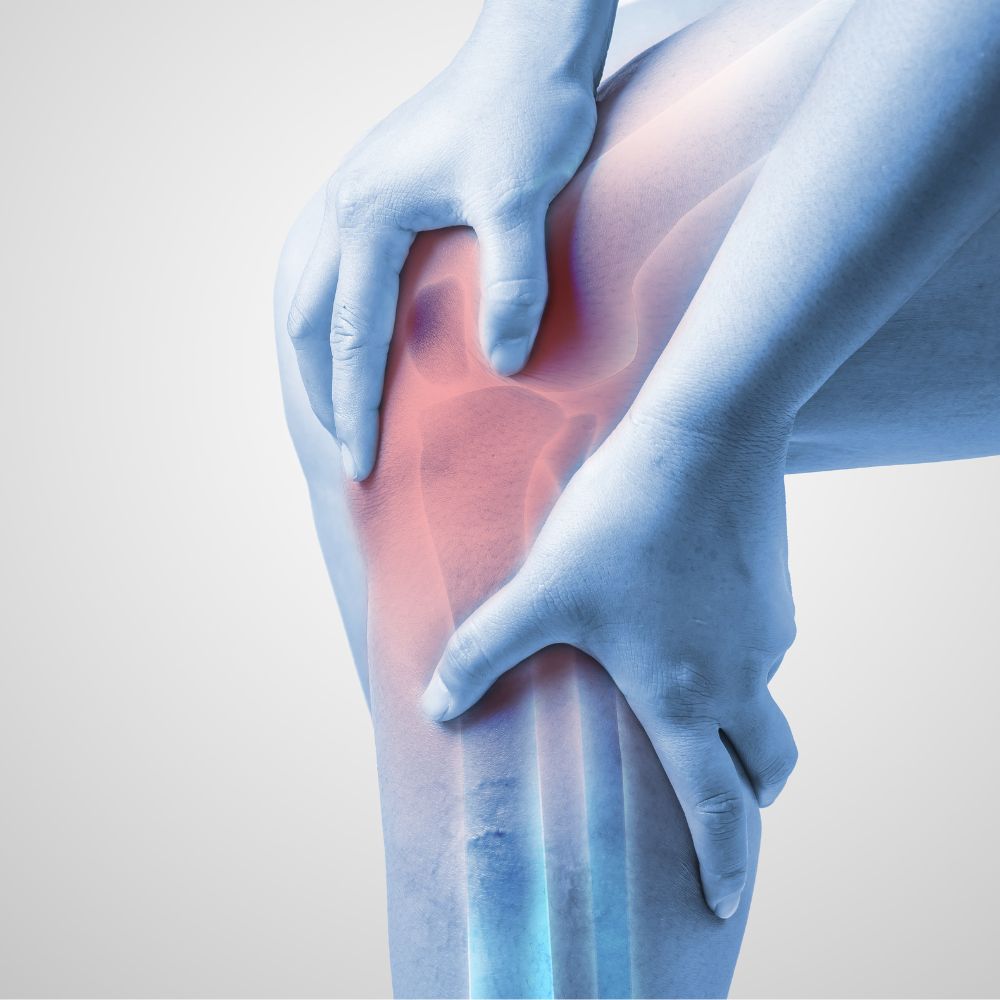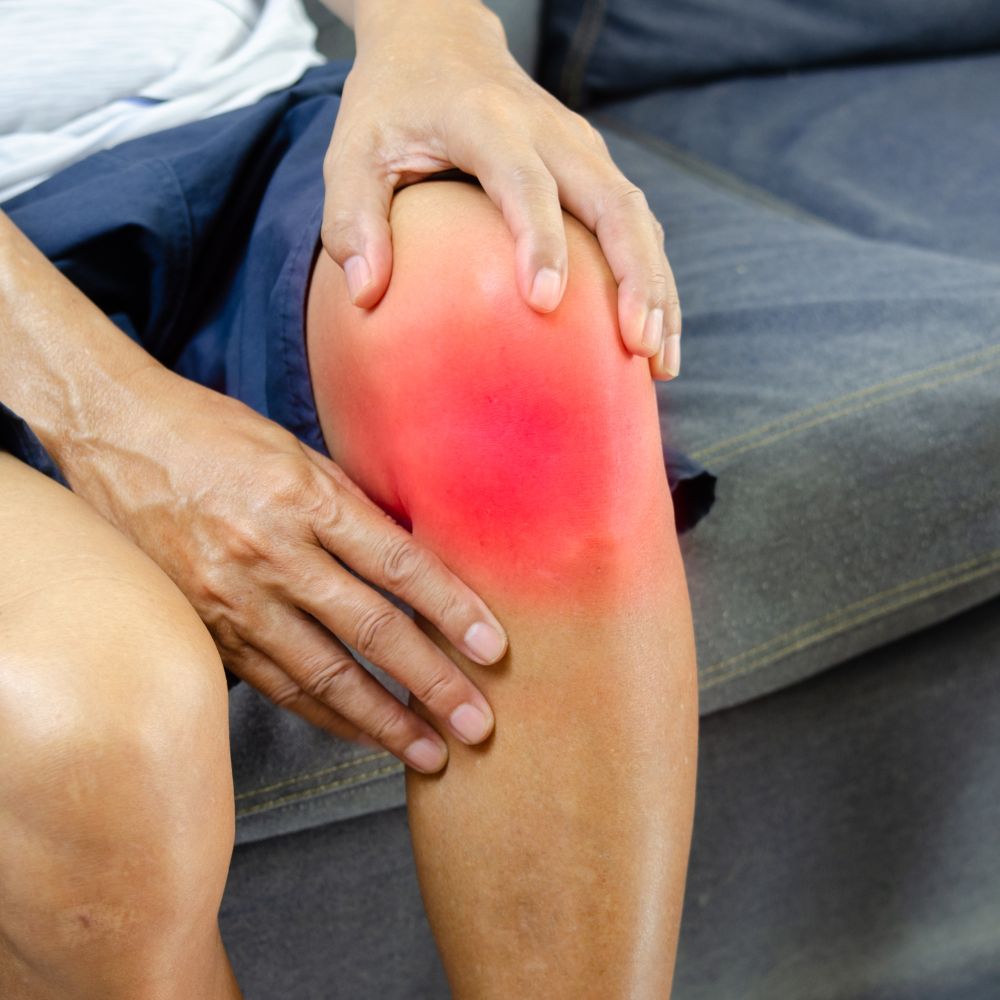If you’re struggling with knee pain, get in touch with our expert team to see how we can help.
Knee pain is a common condition that affects millions of people worldwide. It can range from mild discomfort to severe pain that interferes with daily activities. Here at Plym Physio, we see knee pain as a common occurrence. It can be caused by a variety of factors, including injuries, overuse, arthritis, and other underlying health conditions.

Knee pain can affect anyone, regardless of age, gender, or fitness level. However, certain groups may be more prone to knee pain than. Older adults are more likely to experience knee pain due to age-related wear and tear on the joint, while younger adults may experience knee pain due to sports injuries, overuse or tendon problems. We see and treat them all here in Plymouth.

Knee pain can be caused by a variety of factors, and there are many potential causes of knee pain aside from osteoarthritis. Tendon problems are common as well as muscle imbalance issues. Knees are quite often vulnerable as they are the hinge in the middle of the leg so issues at the foot, hip or back can cause direct or indirect problems there. If you are experiencing knee pain, we can help determine the underlying cause and develop an appropriate treatment plan for you here at Plym Physio. Some examples of common knee pains are;

There are a variety of things you can do to ease knee pain; however, if you are experiencing persistent knee pain or if your symptoms are severe, it is important to get in touch so we can provide some professional advice. If you have suffered a trauma to the knee it is sensible to rest the knee but keep it moving as your pain allows. After this initial period, exercises and physiotherapy may be recommended to help restore strength and function to the injured area so it’s best to get in touch with our team.
Absolutely, physiotherapy is a great treatment for knee pain! We undertake a variety of techniques, such as manual therapy, exercise therapy, acupuncture and taping. These techniques are designed to help reduce pain and inflammation, improve range of motion and strength, and prevent further injury.
Physiotherapy can be particularly helpful for individuals with knee pain due to conditions such as osteoarthritis, ligament injuries, or post-surgical rehabilitation. Here at Plym Physio, we can provide exercises to strengthen the muscles around the knee joint, improve flexibility, and promote proper alignment and movement patterns. We can also help with pain management and develop strategies to prevent future injury or pain from recurring!
In most cases knee pain will resolve with physiotherapy and because of this GP’s are told to send patients for physiotherapy before they are ‘allowed’ to refer onto orthopaedic surgeons – who also like physiotherapy!

There are several types of knee pain; if you’re not sure what type of knee pain you may be suffering from then our team at Plym Physio can help. Here are some of the most common types of pain we see here at Plym Physio;
Got a question? Want to know more about our treatments and classes? Or need to discuss a pain that you just can't get to go away?
Our team are ready to chat to you today to work out the best plan of action to get you back to full strength and fitness.
Copyright © Plym Physio Ltd | Privacy Policy | Terms & Conditions | Website by Respond